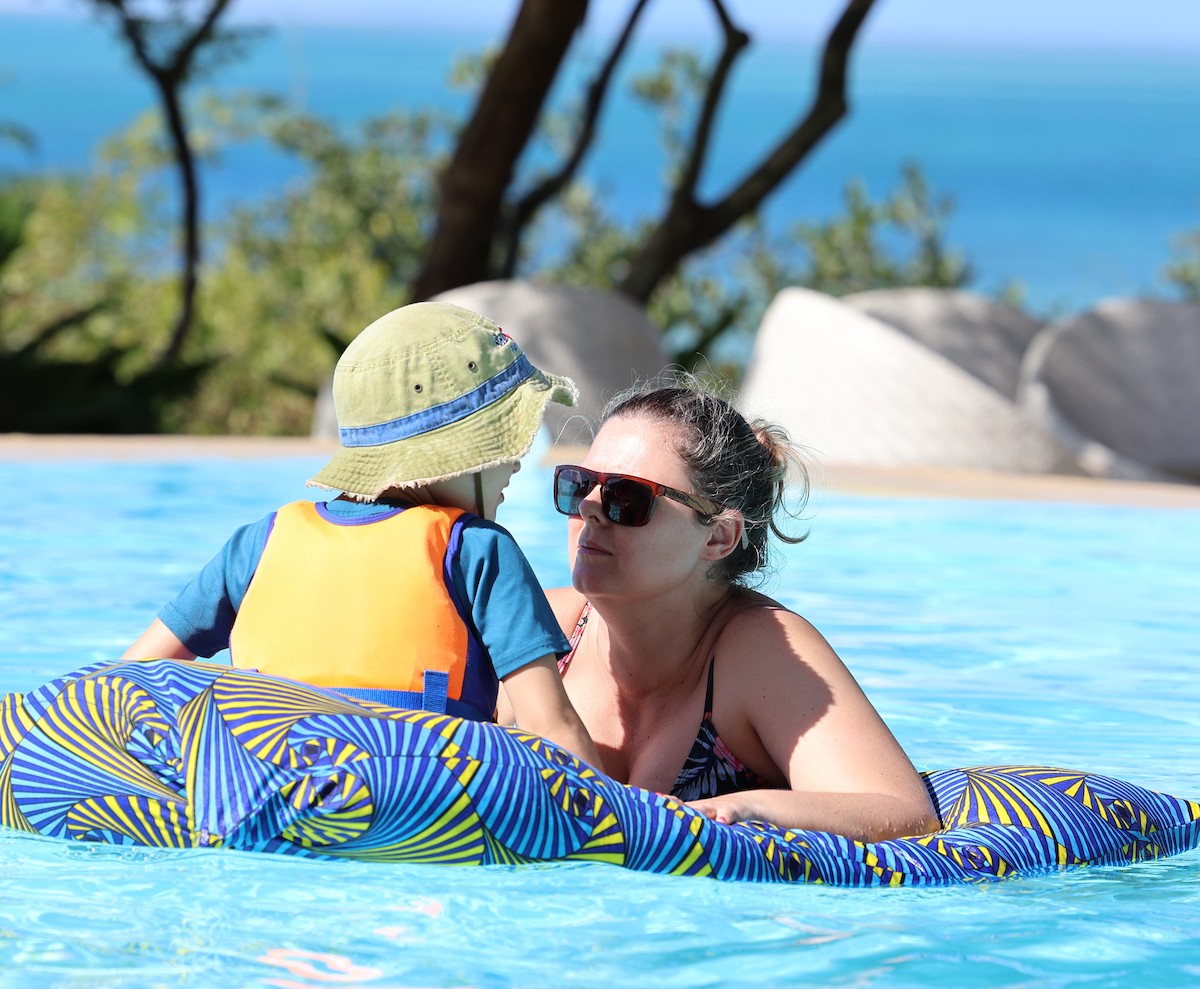Are Safaris Family-friendly and What Age is Appropriate to Go?
Safaris make a great family vacation and many lodges accommodate children of all ages. Much depends on your kids’ interests and maturity, as well as your family dynamics and what you hope to get out of your trip.
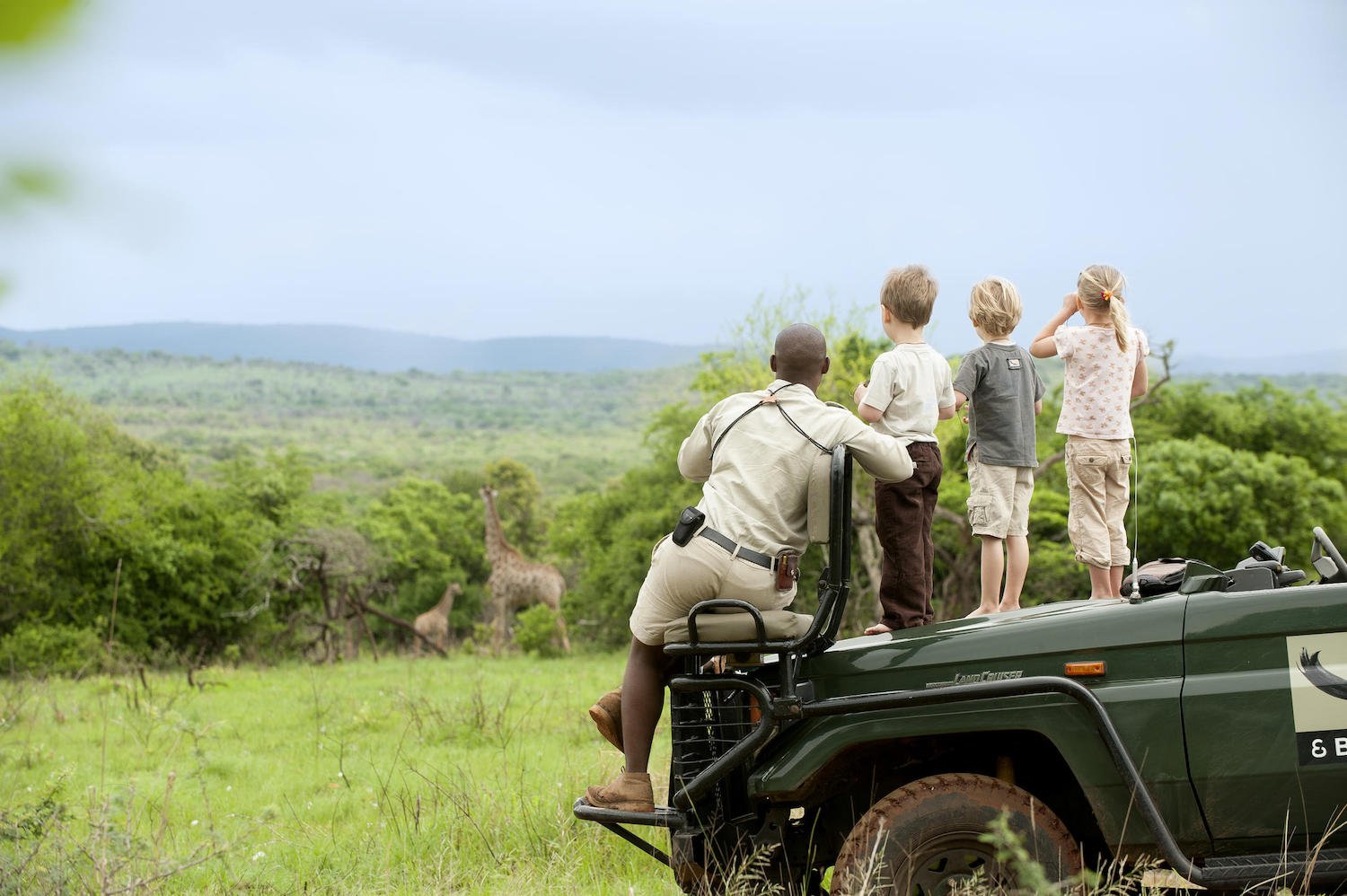
What’s covered in this guide
Explore the highlights of this post with ease by using the table of contents below to navigate to sections of interest.
- Important considerations
- Which safaris are best suited to under-12s?
- How to Plan the Perfect Family Safari
- Before You Go
- Rules of Safari
- What Age is Best for Safari?
- Pros and Cons of Your Own Vehicle
- What Happens at Safari Kids’ Clubs?
- Age-restricted Activities
- What are the best places for a family safari?
- Family-friendly itinerary ideas
- WRITTEN BY JOANNE SHACKS
Important considerations
- Some lodges and camps do have age restrictions to ensure safety.
- Some activities are off-limits by law.
- Some lodges may require you to hire a private game-drive vehicle.
- There are a limited number of family units available.
That being said, there are plenty of options for children of all ages – and we’ll find the right one for you.
Which safaris are best suited to under-12s?
Safaris are best suited to under-12s if:
- You hike, camp, mountain bike, sail or birdwatch regularly as a family and are already familiar with the outdoors.
- If your children are already seasoned travellers.
- If your children adapt well to new environments, meeting strangers, not having a set routine or don’t need a 24/7 connection to devices or the Internet.
- If your kids are generally in good health (motion sickness and allergies to dust, pollen or fur should be noted).
- If your children love biology, science, geography or history at school.
At Biggestleaf, we routinely travel with our own children and love showing them all aspects of Africa, especially how other cultures and communities live. A safari enhances every aspect of your well-being – mental, social, emotional, intellectual and even spiritual – and creates memories for a lifetime.
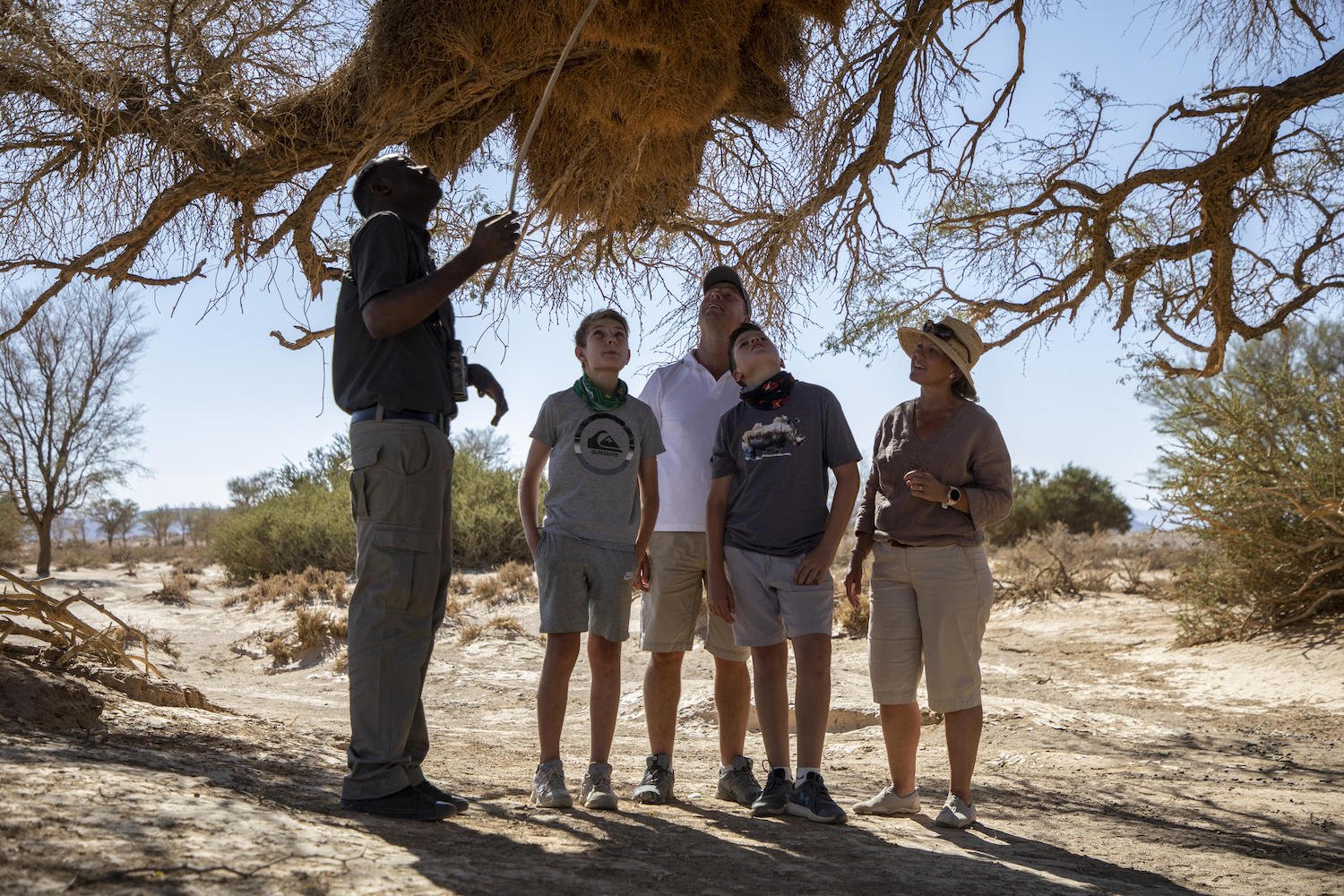
Safaris provide the perfect opportunity to bond as family in the fresh air – and learn something new every day.
How to Plan the Perfect Family Safari
Start with a realistic view of your family’s interests and lifestyle. If you love visiting parks, lakes and being outdoors – and have an interest in nature – then you are already ahead of the pack!
- Be guided by your Biggestleaf consultant. Our expertise allows us to marry your needs and budget with the best possible timetable and lodge. We will always have an in-depth discussion with you to ensure we are all on the same page.
- Be upfront about any dietary, behavioural, medical or social issues. In this way, we can communicate with our safari partners and help ensure they are ready to meet your family’s needs.
- Don’t try to pack too much into your trip! While it is tempting to do and see as much as possible, long-haul flights, road transfers and game drives can be tiring for little ones.
- Don’t move around too much. Some adults move every two nights. With kids, consider settling in for around four nights so everyone can decompress and be properly rested.
- Choose a fenced lodge (so you can walk around without encountering wild animals) and we’ll suggest ones with a kids’ club, swimming pool, playground or little extras like a pizza oven or quad bikes (ATVs) where possible.
- We will aim to book family units so that you can all stay together rather than being split up between tents.
- Be prepared to spend some budget on items like babysitters or nannies, and a private game-drive vehicle (this may be mandatory for children under six).
- Start planning at least a year in advance. While this may seem like a long time, there are a limited number of family units (generally sleeping four) and tents that can take three beds. The more time we have, the higher your chances of getting optimal accommodation.
- We love to hear if your child is obsessed with a certain animal or if they have a favourite bird. While we can never guarantee a sighting, knowing that they love zebra or really want to see an elephant can help us put you in the right place at the right time.
- Tell us if you love sports! Some lodges have archery, soccer, croquet, mountain biking, tennis, volleyball… if you let us know, we can make it happen.
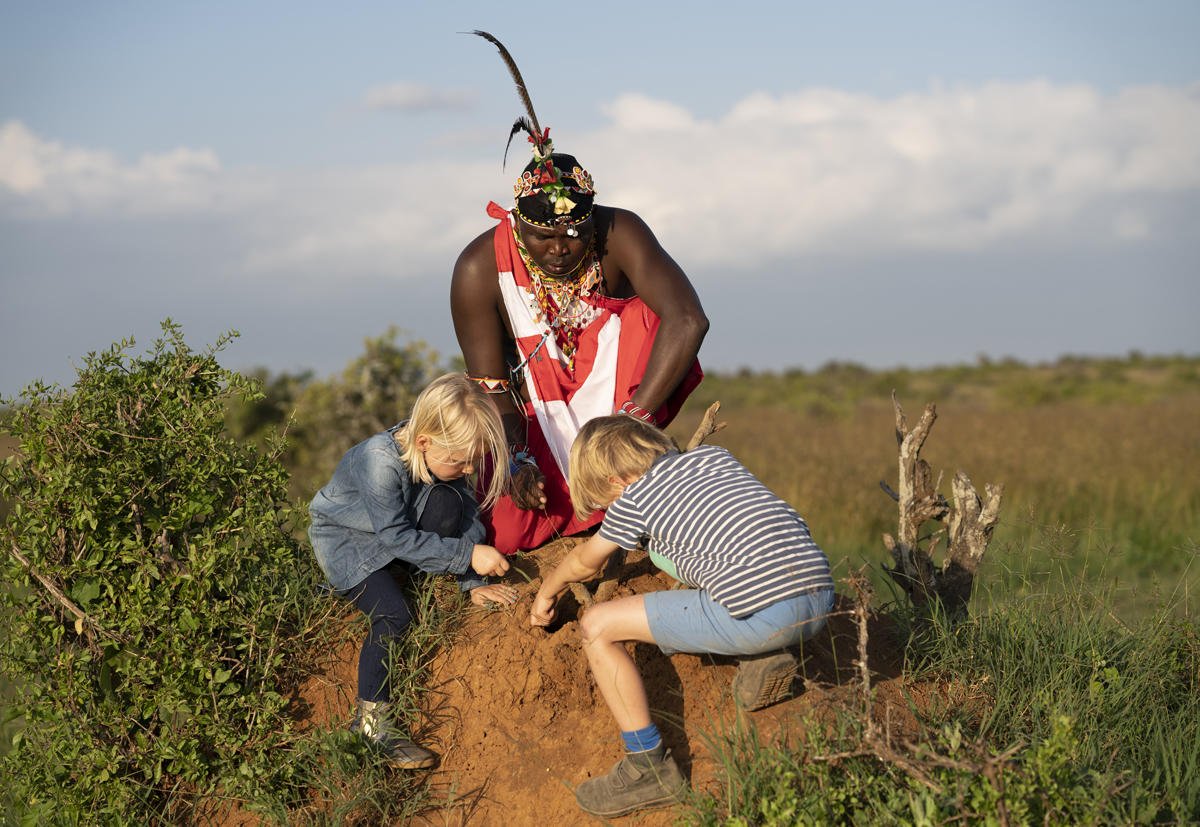
If your kids love nature and the outdoors, they will love being on safari with patient, friendly guides who share their knowledge.
Before You Go
It’s a good idea to give your kids some idea of what to expect – a safari can really take some youngsters out of their comfort zones!
- Be wary of high-octane wildlife documentaries. We love them but they can set unrealistic expectations because they are edited to show action that actually played out over several hours or even months. Too many dramatic scenes of births, chases and kills can make safari seem like a nonstop action movie when the reality is a lot gentler (lions, for example, are almost always asleep during the day).
- Be wary of making promises like, ‘We’re going to Africa to see brown hyena!’ or ‘Yes, we will see pangolins’. The fun of safari is that it is unpredictable: your guide cannot guarantee a single sighting. Some species are very rare, some migrate, rains can be early or late, some den. Promises are hard to keep.
- Remember, your guide is the boss. While you are the parent, when on the vehicle or in camp, staff’s instructions must be followed for your own safety. If a guide asks your child to sit down, keep quiet and so on, it is to ensure that wild animals do not get provoked and become a threat. As a parent, you cannot countermand a guide’s instructions.
- Start learning together. There are plenty of wonderful books, movies and even apps that you can use to get familiar with the animals you may see.
- Consider some ‘toys’. Small binoculars are a worthwhile investment. Adult ones may be too heavy for your child to handle easily. Documentaries set the expectation that animals will be very close (and some are) but often binos really help you see birds up trees, a honey badger under a shrub or even if you’re looking at a rock or an eland in the distance. The same goes for their own camera – it adds to their fun if they can also take pictures.
- A stealth digital detox… Although almost all lodges now have Wi-Fi, signal strength varies enormously and connections may only be available in specific areas. There is virtually no signal while out on a game drive. If your child is ‘extremely online’, consider how you will handle periods with little to no signal.
- How will you handle potentially upsetting sightings? Nature is a cycle of birth and death, and you may see dead or wounded animals, lost babies, blood and so on. If your child is sensitive or becomes upset, consider how you will manage the situation. If you are on a shared game drive with other guests, they may want to stay at a sighting of lions eating a giraffe but your child may be overwhelmed by the smell, growling and sound of crunching bones. If you have your own vehicle, you can simply leave immediately.
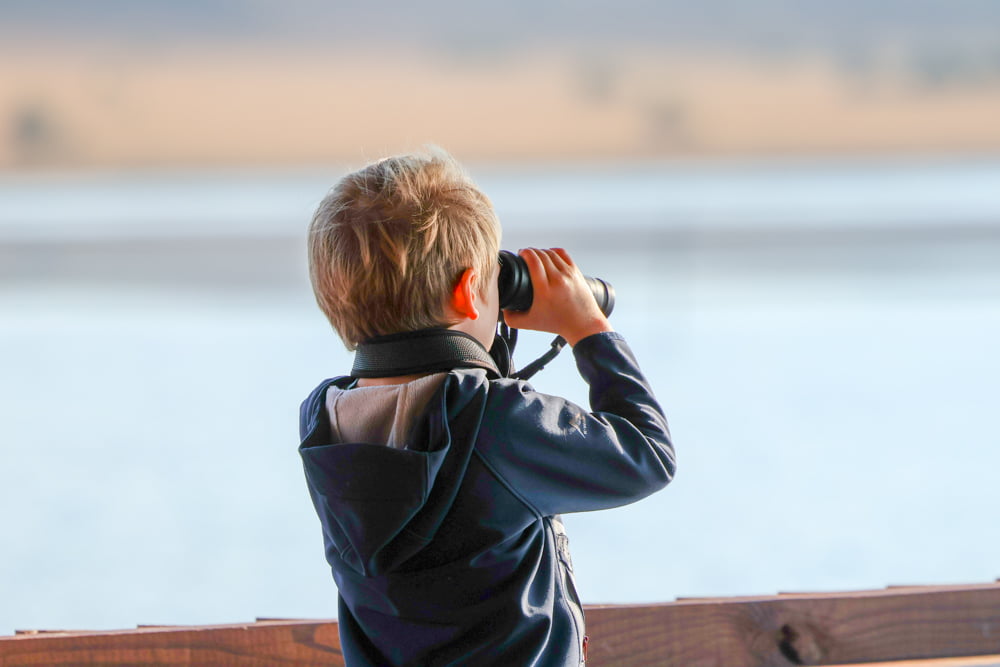
Kids love gadgets and their own binoculars will help keep them occupied on long game drives.
Rules of Safari
Game drives are enormous fun but do come with rules for everyone’s safety, comfort and enjoyment.
- Talking is totally fine but keep it down at sightings so as not to startle the wildlife.
- You may not try to attract the animals’ attention by shouting, banging or throwing things.
- Animals cannot be touched.
- Your guide is 100 percent in charge. Some guides may not approach predators if young children are on the vehicle – please accept this as their experience, training and judgement trumps everything else.
- Eating is reserved for refreshment stops as decided by your guide (animals may be attracted to food). If your child needs snacks outside of meal times, please let your Biggestleaf consultant know so that the staff can factor this into their plans.
- If you need a toilet break, please let the guide know and they will make the arrangements.
What Age is Best for Safari?
We have seen all ages – including newborns – on safari. As a guideline, we believe around seven or slightly older is a good age. This is because:
- Some lodges cannot take under-6s or insist on a private rather than shared game-drive vehicle. This can increase costs.
- Seven is old enough to understand what is happening and to join age-appropriate activities without needing a parent (presuming they go to school without mom or dad being present).
Pros and Cons of Your Own Vehicle
Many lodges insist you book your own vehicle if you are travelling with children six and under but it is worth consider using own because:
- You can set your own schedule. Morning drives leave early while evening ones get back after dark. You can leave later and get back earlier. You can return to the lodge for any reason necessary.
- You can leave or go to sightings. With only your family on board, your guide doesn’t have to consider other guests.
- You have more space. You can spread out and a small child can sleep more comfortably if necessary.
- You bond with your guide. Having your own vehicle means you and your guide can set the pace and determine what’s best for your kids.
- Vehicles are charged per day. The added cost is worth it if you consider the extreme convenience and undeniable luxury of not having to share with strangers.
What Happens at Safari Kids’ Clubs?
These vary from lodge to lodge and can be called a junior rangers’ programme or something along those lines. They are a way of allowing adults to go off on a game-drive, hot-air balloon ride or nature walks while the kids stay at the lodge and have fun. Some of the activities include:
- A short walk with a trained guide to find birds, butterflies, tortoises and other small creatures
- Examining bones, skulls, horns and so on from the lodge’s collection
- Doing arts and crafts
- Baking biscuits or making pizzas
- Playing games or doing puzzles
- Face painting
- Some lodges have outdoor playgrounds
- Workbook activities like colouring in, identifying spoor and so on
Most lodges have Wi-Fi but please note it may not be strong enough to stream shows. Very, very few lodges have television sets but almost all city hotels do.
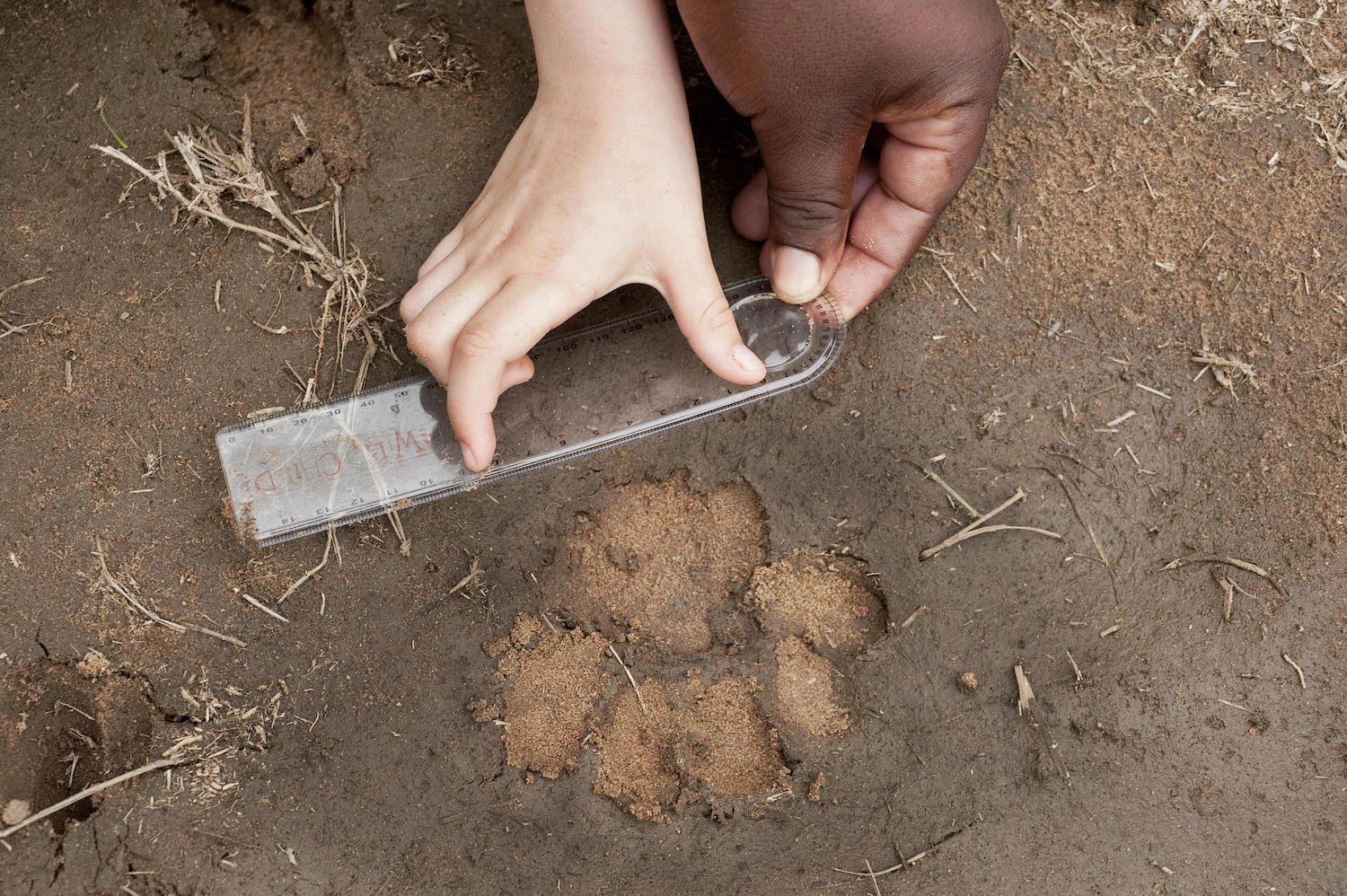
Measuring a paw print is part of the fun of the kids’ programme at Phinda Mountain Lodge in South Africa.
Age-restricted Activities
Please bear in mind that some activities have legal age restrictions, depending on the country:
- Game drives (may need a private vehicle)
- Nature walks (no 12 to 16 depending on area)
- Gorilla trekking (no under 16s)
- Walking safaris (no under 16s)
- Hot-air ballooning
- Kayaking and canoeing
- Bungee jumping
- Bridge swinging
- Meerkat interaction
- Sleepouts
- Fly-camping
- Night drives
- Diving
- Scenic helicopter flights (doors off)
- Horse riding
- Camel trekking
Your Biggestleaf consultant will let you know exactly what activities will be part of your itinerary.
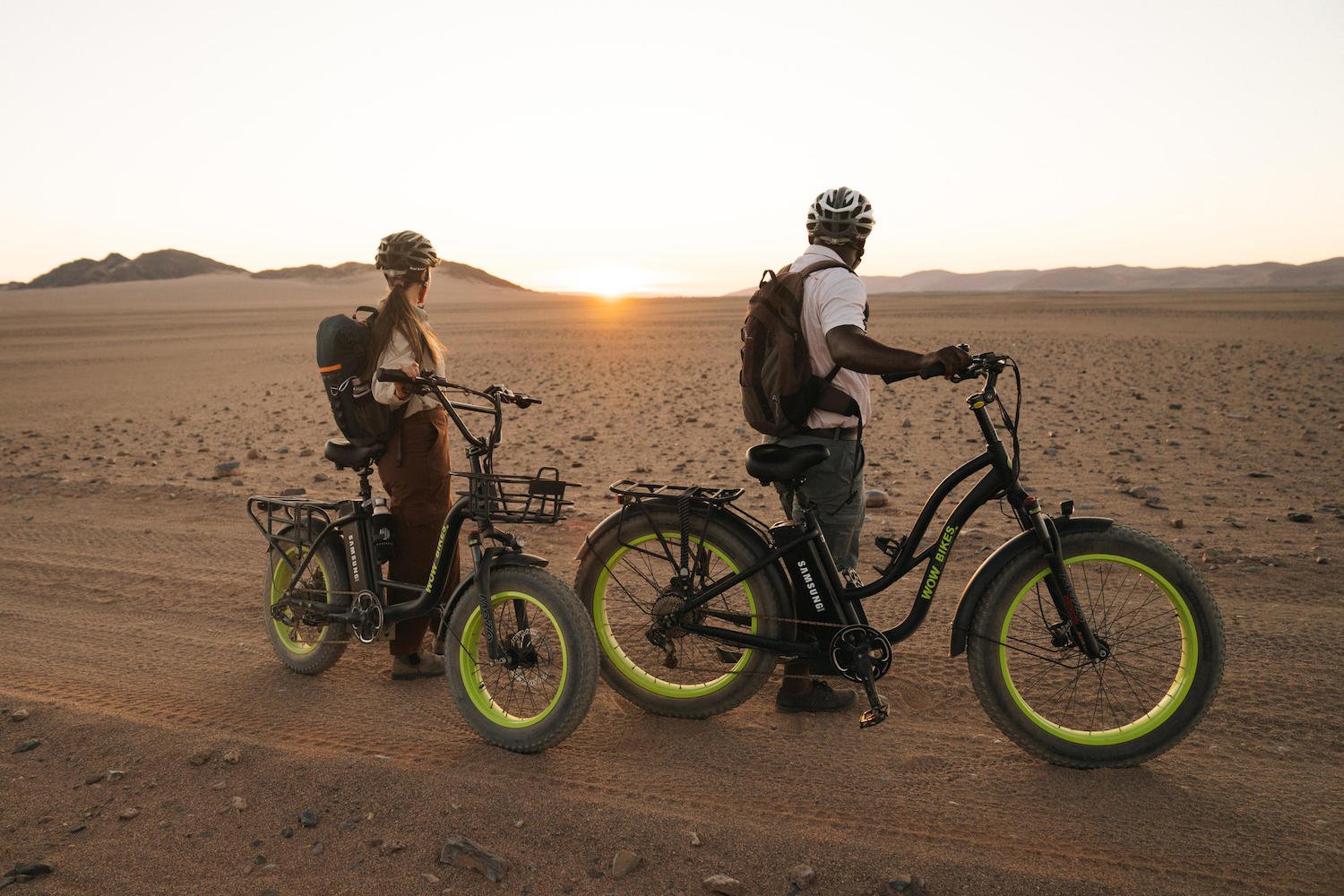
Teens love more unusual activities like riding e-bikes through the desert at Kulala Desert Lodge in Namibia.
What are the best places for a family safari?
Again, much depends on your personal circumstances. In general, first-timers to Africa can’t go wrong with the following destinations:
- Greater Kruger in South Africa: private reserves with plenty of family villas, Wi-Fi, easy access from Johannesburg for international flights and the best place to see the Big 5
- Madikwe in South Africa: a short transfer from Johannesburg with family-friendly lodges in great Big 5 country
- Cape Town in South Africa: plenty to see and do, from whale watching to seeing penguins on the beach, while getting a city fix
- Phinda in South Africa: a private Big 5 reserve that stretches to the warm waters of the Indian Ocean for marine activities
- Victoria Falls in Zimbabwe: the world’s largest waterfall with riverside lodges and a small national park on tap
- The Serengeti in Tanzania: very easy game viewing with the beaches of Zanzibar a short flight away
- The Masai Mara in Kenya: again, very easy game viewing within the international hub of Nairobi
Family-friendly itinerary ideas
Browse our sample itineraries to get some inspiration – and then get touch so we can personalise your vacation according to your budget and timings.
PHOTO CREDITS &Beyond, Roanna Bernatzeder, Wilderness Safaris and Elewana Collection

